A beginner's guide to The Witcher: Where to start and what you should know
If you're getting into The Witcher now, here's what you need to know about the world, books, games, and more.
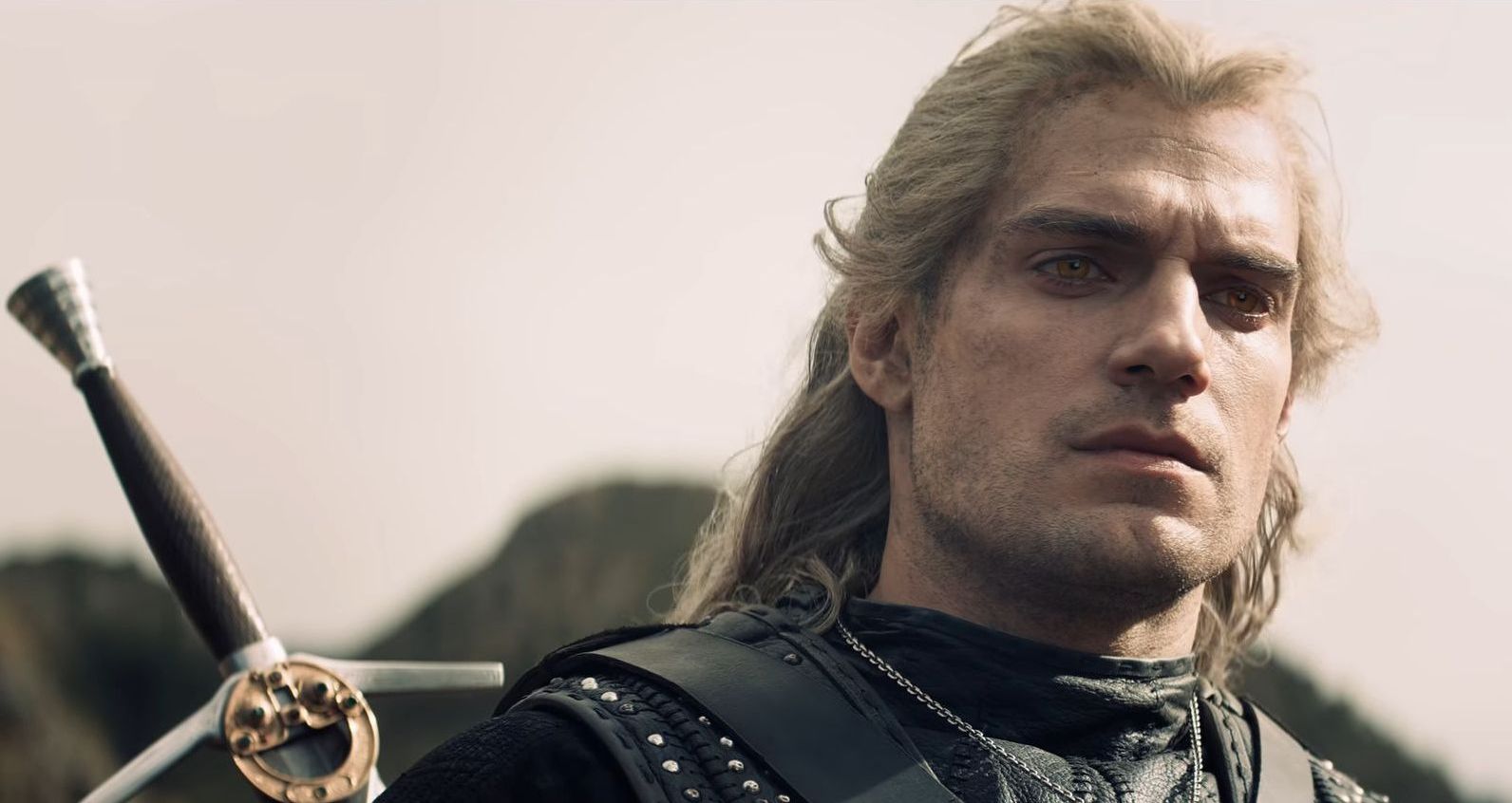
With Netflix bringing The Witcher Season 2 to our screens, it's a good time to be getting into all things Witcher-y. But there's an intimidating amount of Witcher out there—the original eight books, three main videogames and several spin-offs (what is a Gwent, anyway?). And that's not all: there are comics, audio books, and the Polish movie and TV series. Who is Geralt, and why is he in a tub? Who is Yennefer? Which stories take place when?
If you want to know more about The Witcher, but don't know where to start, here's our primer. It'll get you up to speed on who and what you need to know, and what you should read and play first.
The most important characters
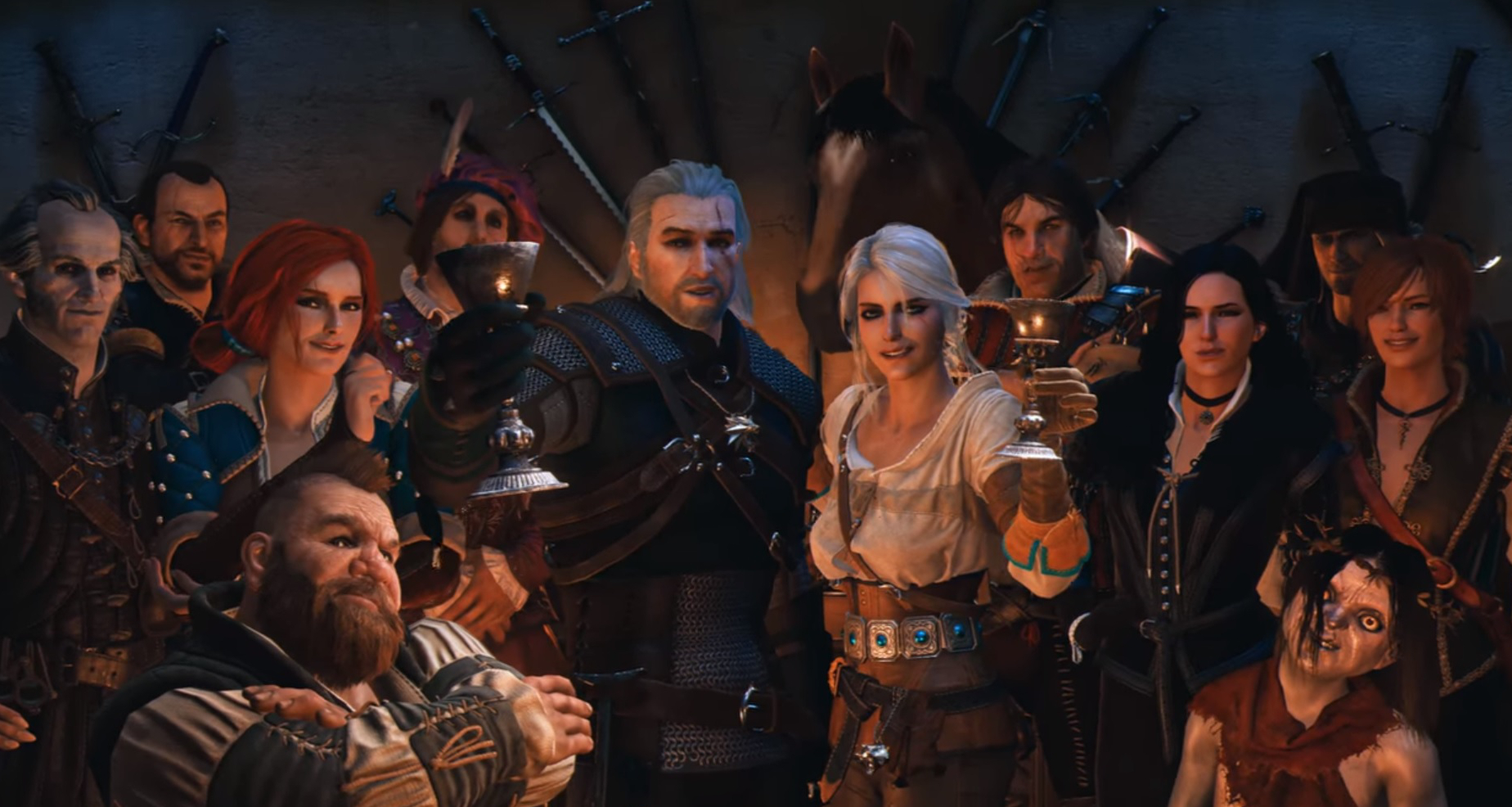
There's an extensive cast of characters across the entire Witcher series, but only a few that you really should know about going in.
- Geralt - A monster-hunting mutant who is hated by the world he protects, except for its beautiful sorceresses who seem to frequently adore him. Present in: Everything.
- Ciri - A princess whose destiny is tied to Geralt's, and becomes his foster daughter over the course of the saga. Present in: The books, the show, the third videogame.
- Yennefer - A short-tempered sorceress who is the love of Geralt's life, though they're apart as often as they're together. Present in: The books, the show, the third videogame.
- Dandelion/Jaskier - A poet, bard, and dandy who is Geralt's traveling companion and frequently the reason he gets into trouble. Jaskier's his name in the original Polish and the Netflix series, Dandelion in the games. Present in: Everything.
- Triss - Another sorceress in love with Geralt, Triss helps raise Ciri and is something of a sister to her. Present in: Everything.
- Zoltan - Several garrulous hard-drinking dwarves serve as Geralt's companions temporarily, including Zoltan Chivay, a mohawked war veteran. Present in: All three games, the novels Baptism of Fire and The Lady of the Lake.
Nations and key terms
The Witcher TV series takes place across a large fantasy world, and the books and games focus in on different countries and regions. Here's a basic map (though wars that play out over time will change the political boundaries). The insert in the right shows the territory to the south owned by the empire of Nilfgaard, while the main map shows off the Northern Kingdoms, where most of the stories take place. The islands of Skellige are off the coast to the west.
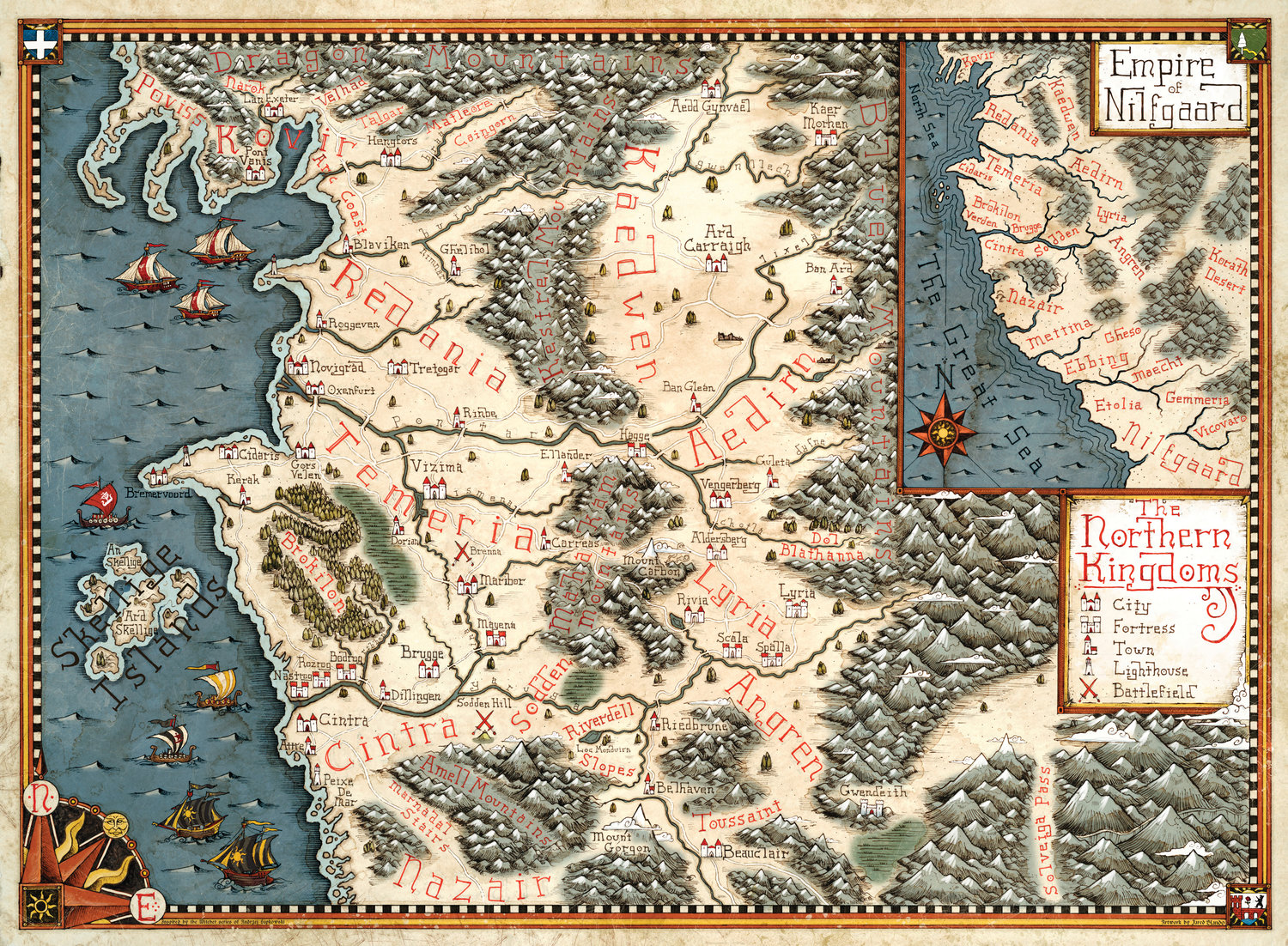
Nations
- Cintra - One of the Northern Kingdoms, invaded by Nilfgaard during the first Northern War.
- Rivia - A small Northern kingdom best known for the "of Rivia" that appears after Geralt's name. Geralt is not actually from Rivia, but took the name as an easy reference for those skeptical of witchers.
- Nilfgaard - The south is controlled by the sprawling Nilfgaard Empire. The bad guys, though it's never quite that simple.
- Skellige - Basically the Ireland of the Witcher world, an island kingdom off the coast of the Northern Kingdoms. Fearsomely independent, but allies with Cintra.
Key terms
- Witcher - A professional monster-slayer who fights with swords and minor magical tricks called signs. Witchers are put through intensive (and cruel) training from childhood and exposed to mutagens that change their bodies, making them stronger, long-lived, and have cat-like eyes. They're also sterile. There are few witchers in the world, and they're often viewed as freaks.
- The Law of Surprise - A boon granted for a life saved, the first thing the debt-ower finds at home they don't expect. It may be a bumper harvest, a new puppy, or even a child.
- The Conjunction of the Spheres - A cosmic cataclysm 1,500 years in the past that caused a merging of worlds, and is supposedly the reason why creatures like ghouls exist in The Witcher's world. According to elves, this is also how humans arrived.
The Witcher books
Best for: Getting an understanding of the politics.
Reading order: Here's our full guide on where to start.
Highlights: It all builds to a poignant finale in The Lady of the Lake, but it'll take some reading to get there.
The biggest gaming news, reviews and hardware deals
Keep up to date with the most important stories and the best deals, as picked by the PC Gamer team.
To begin at the beginning, Andrzej Sapkowski's books about a "Wiedźmin", as witchers are called in the original Polish, are the OG source for everything that comes later. Sapkowski created Geralt and his world for a series of short stories collected in two books called The Last Wish and The Sword of Destiny, then expanded from there into a saga of five novels followed by a prequel called Season of Storms.
If you're thinking the prequel might be a good place to start, think again. Season of Storms is set in the middle of the short story period of Geralt's life rather than at the absolute beginning, and it ends with an epilogue set well after them. It's a confusing place to start. You should definitely save it for last.
Whether you begin with the short stories or the saga is a matter of taste. The short stories introduce characters like Dandelion/Jaskier and Yennefer, and they do take place first, but these episodic adventures—many of which are essentially dark fantasy parodies of fairy tales—can be an acquired taste. If you do choose to start here, pick up The Last Wish.
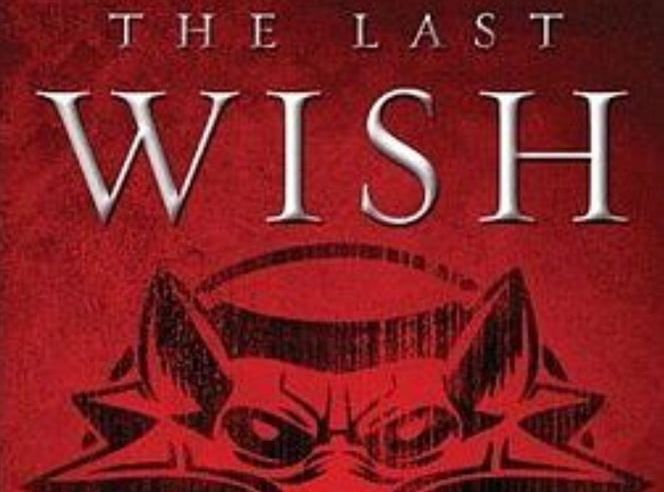
Skip ahead to the saga and you'll be missing out on some setup, but you'll also be able to jump right into a more fully developed version of the world and its characters. The novels often feature lengthy digressions told from the point of view of other characters, particularly Geralt's foster-daughter Ciri, and delve deep into the wartime politics of the setting. (Sometimes a little too deep, if you're not into multiple chapters of squabbling kings and sorcerers.) If you don't mind playing catch-up and want to see The Witcher's world at its best, start here by grabbing Blood of Elves.
If you're an audiobook listener, all eight of the Witcher books are available in versions narrated by Peter Kenny, who does an excellent job even if he does call Dandelion "Dandilly-on" for the first one and gives Ciri a Scottish accent that might take some getting used to. His northern Geralt sounds a bit like Sean Bean, which is honestly a solid choice.
The Witcher games
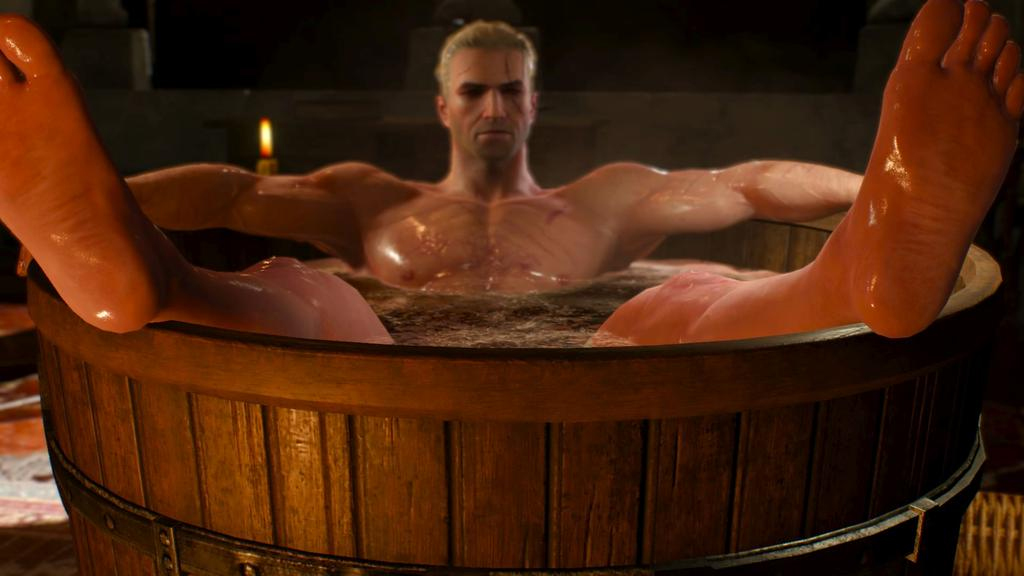
Best for: The experience of living in its world, steering Geralt into being a slightly less cynical hero as he matures.
Playing order: The Witcher 3, then its expansions, then The Witcher 2 if you really need more.
Highlights: The Bloody Baron questline, talking a ghost to a wedding in the Hearts of Stone expansion, waking up with a tattoo in The Witcher 2.
Essential mods: The best Witcher 1 mods | The best Witcher 2 mods | The best Witcher 3 mods
CD Projekt Red's videogames are responsible for popularizing the series outside Poland, and even though the Netflix series isn't directly based on them they're well worth a look. However, massive improvements have been made with each new game and it's not the kind of series where you need to start with the first one. The original Witcher game was a mess, and although a director's cut improved the clunky translation and there are mods to tweak its miserable combat, it's still very skippable.
The Witcher 2: Assassin of Kings is a definite improvement, and the way its plot branches midway through was impressive at the time, but it's still not an instant recommendation. Highlight quests—like the one where Geralt wakes up with a hangover and a tattoo and has to puzzle out the events of the night before—are spread pretty far apart, and the combat's better but that just means it's gone from miserable to mediocre. Handily, it does have plenty of mods worth trying.

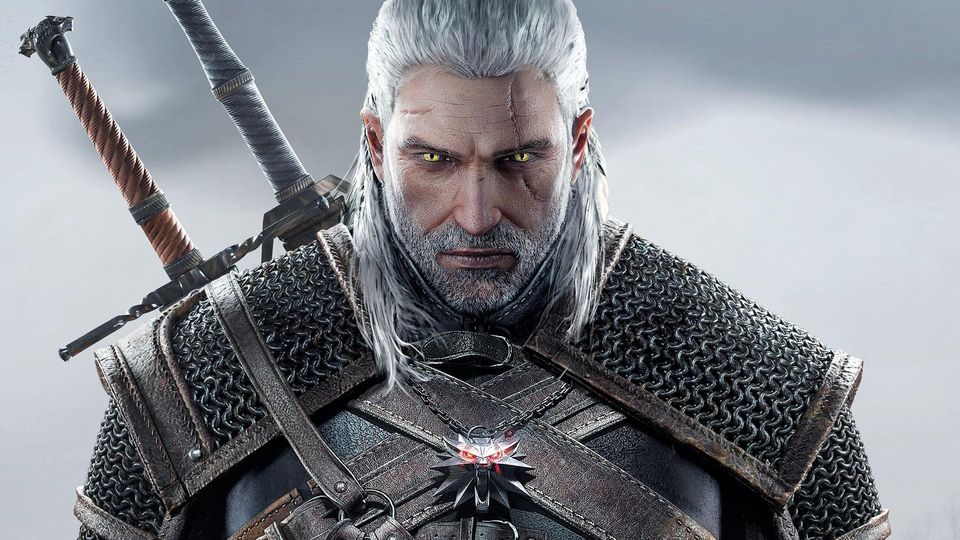
The Witcher 4: What we know
The Witcher season 3: Trailers and cast
Witcher 3 mods: Good hunting
The Witcher books: Where to start
If you want to see what the fuss is really about, The Witcher 3 is the place to be. Don't worry about what you're missing by starting with game three—although there is a scene early on where a character asks you about the events of the previous game, the plot is inspired more by the novels and in fact drops a major thread set up in Witcher 2.
After two games of ignoring and sidelining central characters from the books like Ciri and Yennefer, The Witcher 3 brings them to the main stage, meaning that a grounding in the books or the TV show is more useful. When Geralt bumps into an NPC from the books who hasn't appeared in the previous games he still responds like someone who knows them would, so spending 70 hours slogging through prior RPGs won't help you when Dijkstra shows up and Geralt reacts like they know each other.
The three RPGs aren't the end of it. There are also two spin-offs based on gwent, the minigame Geralt plays in The Witcher 3. If you play that and can't get enough of it then there's a free-to-play online version just called Gwent, and a singleplayer narrative game powered by gwent called Thronebreaker that lets you play as Queen Meve, ruler of Rivia and Lyria, during the wars that precede Geralt's games. Or you could try Condottiere, the tabletop game for two to six players Gwent is rather blatantly borrowed from.
Skip The Witcher Adventure Game. It's a digital adaptation of a Witcher board game, and was not well-received.
The Polish movie and the comics
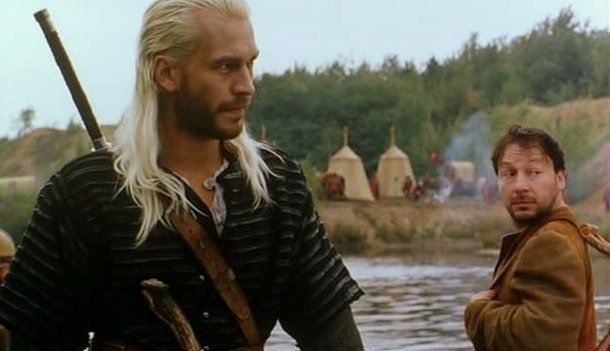
Best for: If you've enjoyed the rest and still need more.
Playing order: Start with the Dark Horse comics, then move on to CD Projekt Red's comics, then don't watch the movie (without turning it into a drinking game).
Highlights: The Curse of Crows comic is set after The Witcher 3 and makes a pleasing coda to its story.
The Netflix series isn't the first attempt at bringing Geralt to the screen. In 2001 a Polish production company released a movie based on the books, and it's a mess. Richard Cobbett goes into more detail (much more detail) about exactly what's wrong with it in his Crapshoot column.
To be fair, the main reason the movie is incomprehensible is that it was edited down from several episodes of a TV show that, in spite of a limited budget, actually did tell a sensible story if you watched the whole thing rather than two hours of random scenes cut from it and clumsily stitched together. Unfortunately only the movie version is available in a legit English translation, but fansubbed versions of the show are floating around.
Geralt's also had a fine run of adventures in comic books. Some were published by CD Projekt Red and take place in between the videogames, while others were published by Dark Horse and a couple of those continue Geralt's adventures where The Witcher 3 left off. They're better than most videogame comics, and we've got a ranked list of the Witcher comics right here.

Jody's first computer was a Commodore 64, so he remembers having to use a code wheel to play Pool of Radiance. A former music journalist who interviewed everyone from Giorgio Moroder to Trent Reznor, Jody also co-hosted Australia's first radio show about videogames, Zed Games. He's written for Rock Paper Shotgun, The Big Issue, GamesRadar, Zam, Glixel, Five Out of Ten Magazine, and Playboy.com, whose cheques with the bunny logo made for fun conversations at the bank. Jody's first article for PC Gamer was about the audio of Alien Isolation, published in 2015, and since then he's written about why Silent Hill belongs on PC, why Recettear: An Item Shop's Tale is the best fantasy shopkeeper tycoon game, and how weird Lost Ark can get. Jody edited PC Gamer Indie from 2017 to 2018, and he eventually lived up to his promise to play every Warhammer videogame.

